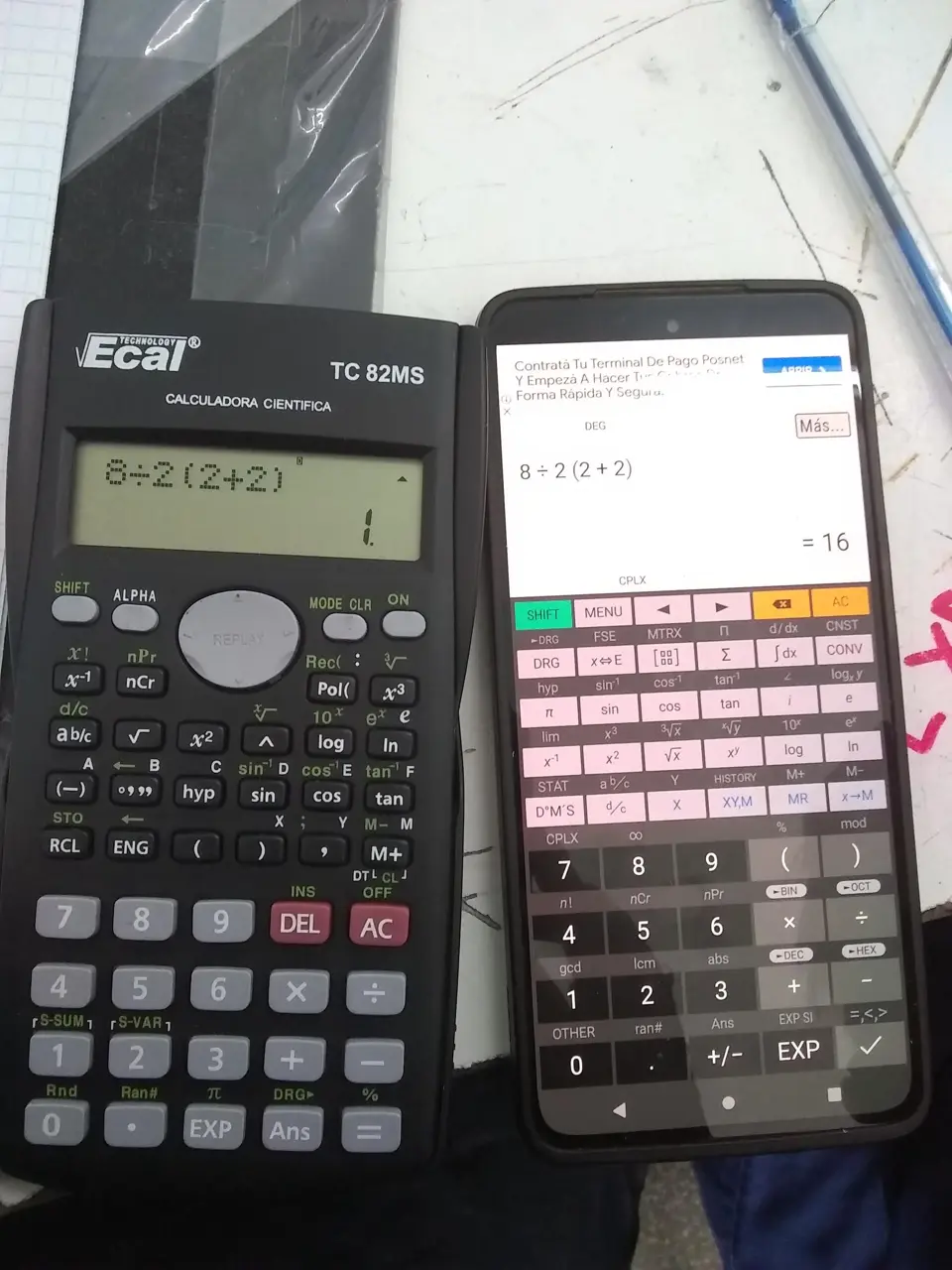this post was submitted on 03 Dec 2023
420 points (99.8% liked)
196
16597 readers
2470 users here now
Be sure to follow the rule before you head out.
Rule: You must post before you leave.
founded 1 year ago
MODERATORS
you are viewing a single comment's thread
view the rest of the comments
view the rest of the comments

(8 ÷ 2) × (2 + 2)8 ÷ (2 × (2 + 2))2 2 + 8 2 ÷ × .(× (÷ 8 2) (+ 2 2))prefix notation doesn't need parentheses either though, at least in this case. lisp uses them for readability and to get multiple arity operators. infix doesn't have any ambiguity either if you parenthesize all operations like that.
There isn't any ambiguity even if you don't.
You added brackets and changed the answer. 2(2+2) is a single term, and if you break it up then you change the answer (because now the (2+2) is in the numerator instead of in the denominator).
The only right answer
Nope, 1 is the only correct answer.
Except they don't. This isn't a notation problem, it's a people don't remember the rules of Maths problem.
PEMDAS is actually (PE)(MD)(AS). Those that are grouped together have equal precedence and are evaluated left to right.
8 / 2 * (2+2)
8 / 2 * 4
4 * 4
16
Edit to fix formatting, maybe?
When you added the multiply you changed the answer, because the (2+2) is now in the numerator instead of in the denominator.